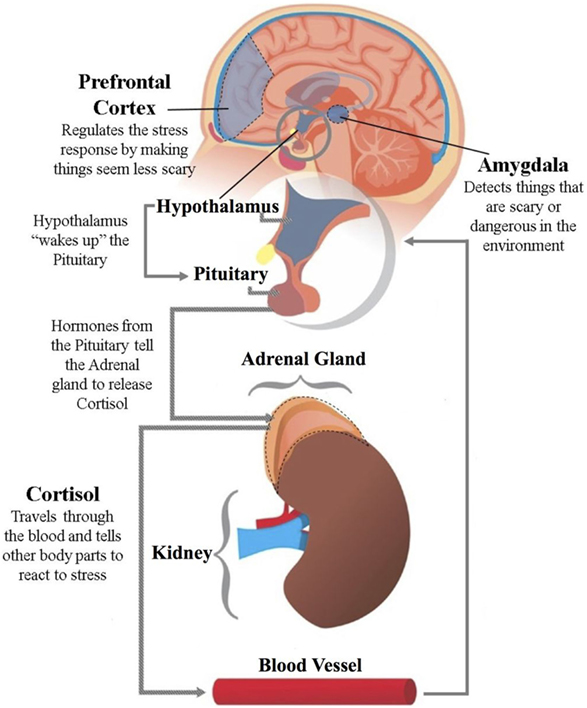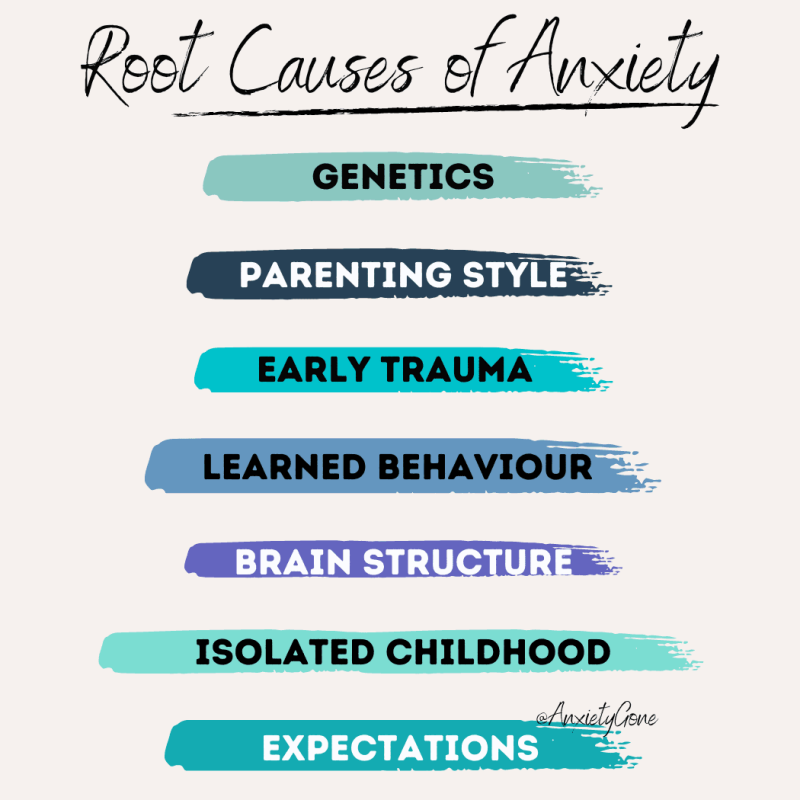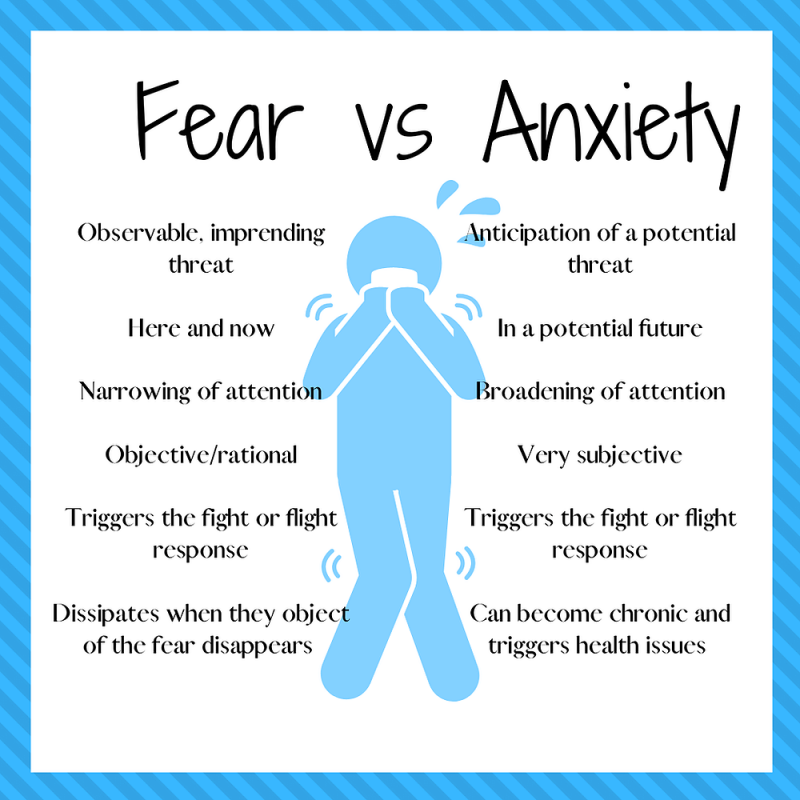What is Anxiety?

Anxiety is a normal, occasional experience in every human life course. There is even good stress/ anxiety that can help us, versus the bad stress that makes us feel unable to accomplish tasks. When people begin to experience intense, persistent worry and fear over everyday situations is when anxiety disorders are diagnosed, and nearly 30 percent of adults at some point in their life are diagnosed. Feelings of anxiety and panic can begin to interfere with the daily activities of life and can begin to feel debilitating. Let us look at what happens inside of us in times of stress. First, the sympathetic nervous system (SNS) is activated. The SNS is responsible for our fight or flight response. This causes a cascade of events, which can also be followed in the image, of both hormonal and physiological that occur after the SNS is activated. The amygdala is responsible for processing fear and arousal, along with emotional stimuli to determine the actions that are necessary to happen next. If needed, the amygdala sends a signal to the hypothalamus regarding the stress. The hypothalamus activates the SNS, and the adrenal glands release stress hormones (like epinephrine). This results in the physical symptoms of anxiety, such as increased heart rate and others which can be seen in the symptoms section below. While the body continues to perceive a threat, the hypothalamus activates the hypothalamic pituitary adrenal axis (HPA axis). Cortisol is then released from the adrenal cortex and allows the body to be alert during a threat. Also, cortisol’s mechanisms are able to provide energy to the body. Now we will look at causes of anxiety, other symptoms of anxiety, and some possible treatments. We can also look more closely at glucocorticoids levels, as they are believed to be linked to generalized anxiety disorders and PTSD.
Causes of Anxiety: view image on the right

- Genetics
- Traumatic life events; death of a loved one
- Nature and nurture; parenting styles and childhood
- Stressful life events; financial stress, school or work stress
- Medication side effects
- Medical causes; heart disease, chronic pain
- Illegal recreational drugs; cocaine
Glucocorticoids:
- Glucocorticoids; hormones that produce effects to respond to stress.
- The main glucocorticoid stress steroid is cortisol, and it is synthesized in the adrenal cortex
- Glucocorticoids are needed for creating the of memories associated with the stress
- Glucocorticoids respond to the adrenocorticotropic hormone and stimulates gluconeogenesis to provide energy for “flight or fight”
Symptoms of Anxiety:
- Feeling a sense of danger or panic; difficulty controlling worry
- Feeling nervous and tense; to the point of avoiding things/ events that could lead to triggering anxiety
- Increased heart rate
- Increased breathing
- Inability to be still and calm
- Trouble concentrating on things and trouble sleeping
- GI problems
Treatments of Anxiety:
- Without medications:
- Exercise/ meditation
- Healthy diet; along with avoiding alcohol and drugs
- Healthy sleeping habits
- With medications/ therapy:
- Anti-anxiety medications, antidepressants are also sometimes used to treat anxiety disorders
- Benzodiazepines (sedatives) for short term use
- Cognitive behavioral therapy
- Exposure therapy
- Music therapy
Sources:
Martin, E. I., Ressler, K. J., Binder, E., & Nemeroff, C. B. (2009). The neurobiology of anxiety disorders: brain imaging, genetics, and psychoneuroendocrinology. The Psychiatric clinics of North America, 32(3), 549–575. https://doi.org/10.1016/j.psc.2009.05.004
Thau L, Gandhi J, Sharma S. Physiology, Cortisol. [Updated 2021 Sep 6]. In: StatPearls [Internet]. Treasure Island (FL): StatPearls Publishing; 2021 Jan-. Available from: https://www.ncbi.nlm.nih.gov/books/NBK538239/
https://www.webmd.com/anxiety-panic/guide/causes-anxiety
https://www.mayoclinic.org/diseases-conditions/anxiety/diagnosis-treatment/drc-20350967
